- Home
- Lava
- Lava Iris 406Q
- Unboxing
Lava Iris 406Q Unboxing
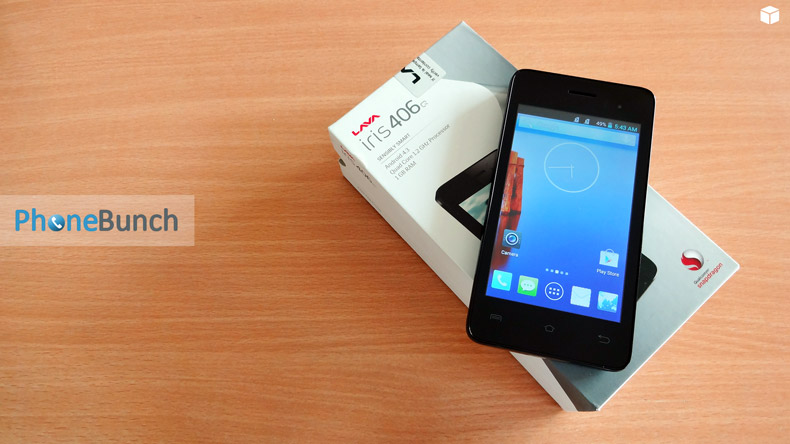
Lava Iris 406Q is a breakthrough smartphone in the entry-level segment. It features a quad-core Snapdragon 200 processor with 1 GB RAM running Android 4.3 Jelly Bean, which is unheard of in this segment. It comes with a 4-inch display and moreover with a very healthy 1700 mAh battery. But are the specs enough, where have the compromises been made to reach this price-point? Lets try to answer some of these questions in our Unboxing of the Lava Iris 406Q.
Unboxing Video
In the Box
Its not just the typical accessories you get in the box, Lava packs quite a lot with the Iris 406Q even though the phone costs just about Rs. 7000. You get a free flipcover as well as a screenguard within the box apart from the usual accessories.
Here's the list of box contents:
- Lava Iris 406Q
- Flip Cover, needs to be stuck on the backcover
- Screenguard
- Wired Headset
- USB Data Cable
- USB Wall Charger
- User Manual

Not complaining, but would have like the flip-cover to have its own integrated back-panel instead of having to stick it onto the phone's original backcover. Nevertheless, I dislike the design of the backcover, so this might just be a blessing in disguise.
Hardware Overview
Coming to specs, the Iris 406Q comes packed with a 4-inch WVGA (800x480 pixels) display, 1.2 GHz quad-core Snapdragon 200 processor with Adreno 302 GPU, 1 GB RAM running Android 4.3 Jelly Bean. There's a 5-megapixel camera at the back with LED flash capable of recording 720p videos and a VGA front facing shooter as well.
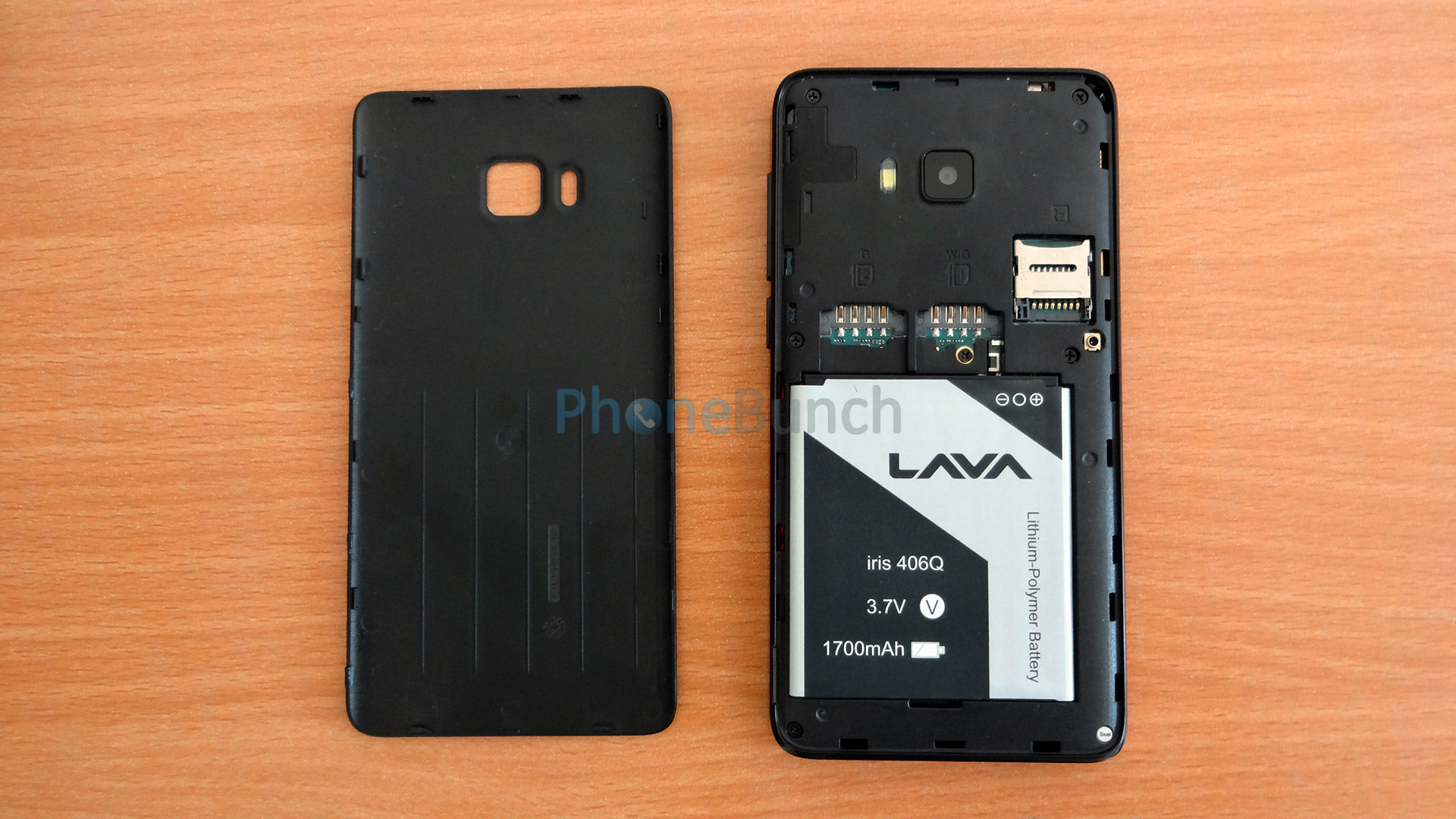
This is a dual-SIM device with 3G connectivity, WiFi b/g/n, Bluetooth, GPS and FM Radio. You have a proximity sensor, light sensor as well as a gravity sensor available on the device. You can see the detailed hardware specifications here.
Build
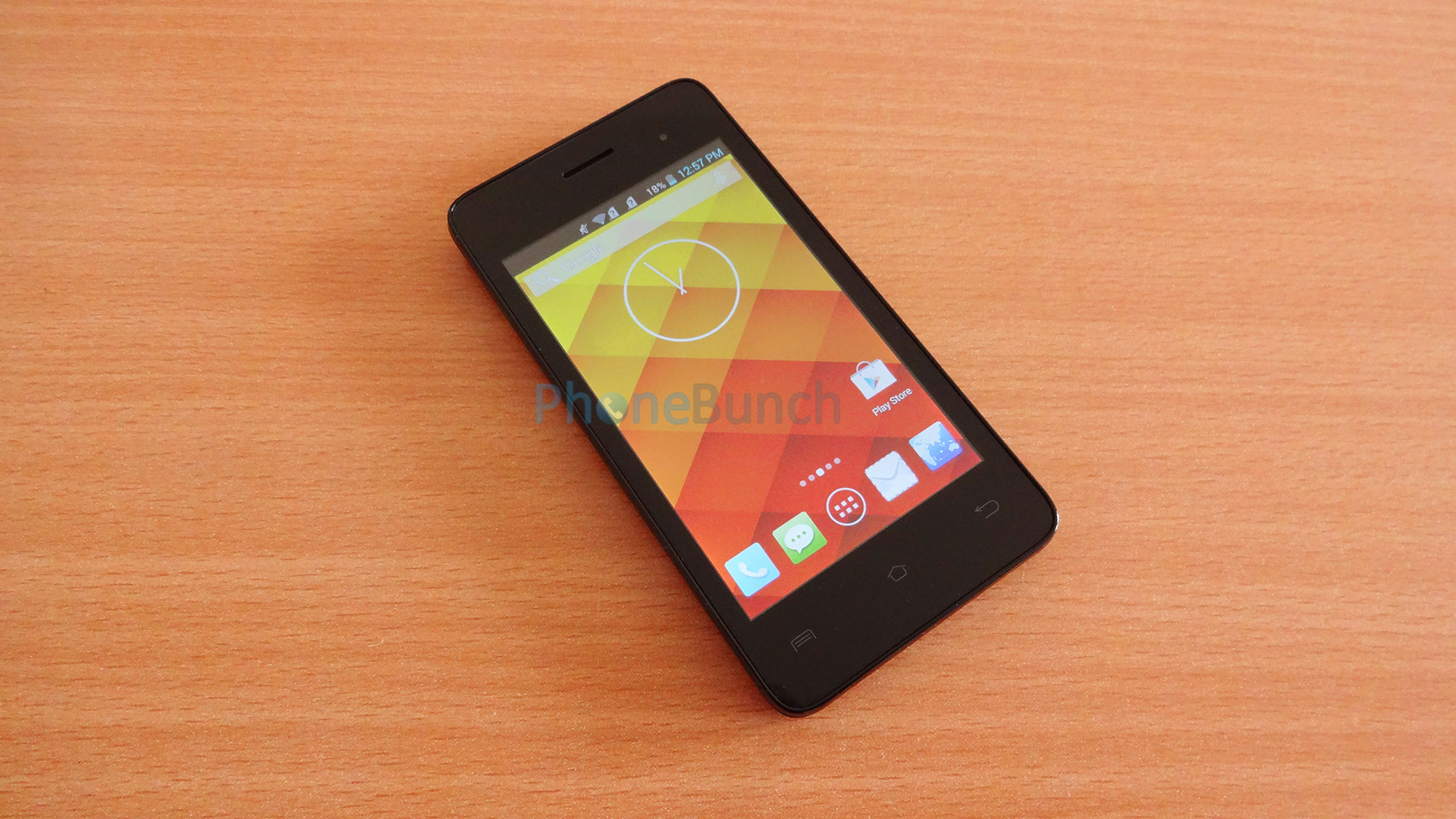
Considering the price and specs you would think that the build of the device would feel a bit cheap. You would be right to think that. Iris 406Q has a very plastic feel to it. Its front is covered in hardened plastic, which houses the 4-inch display, three capacitive buttons just below it which do not light up and the main earpiece, sensors, VGA camera right up top. Its not necessarily bad looking from the front, but its just meh! The sides are a bit raised to protect the display from coming in direct contact when placed face first.
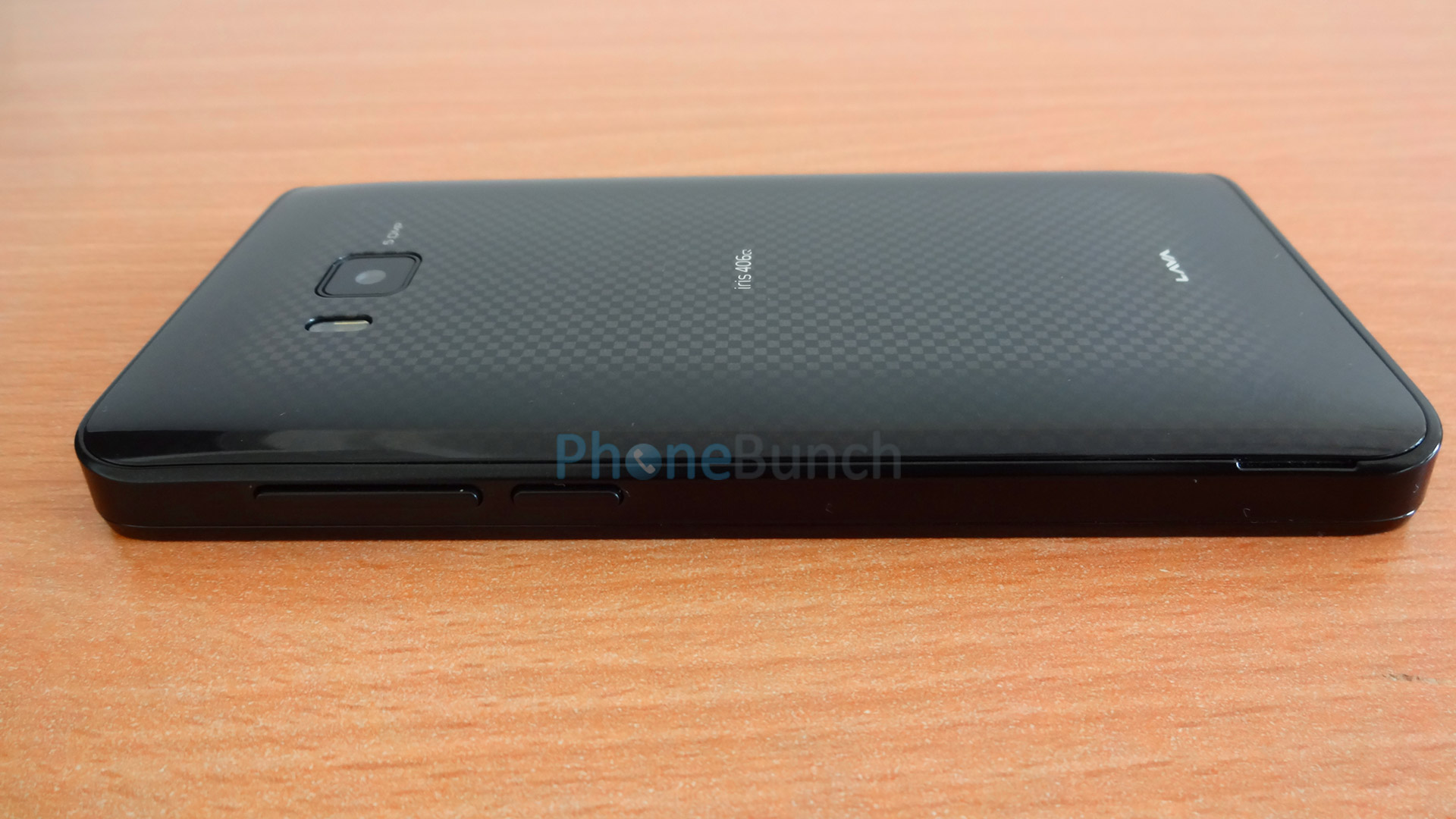
There's nothing on the left apart from an expanse of black plastic since both the volume rocker and the power lock/unlock button find a place on the right. The buttons are surprisingly sturdy and offer good travel.
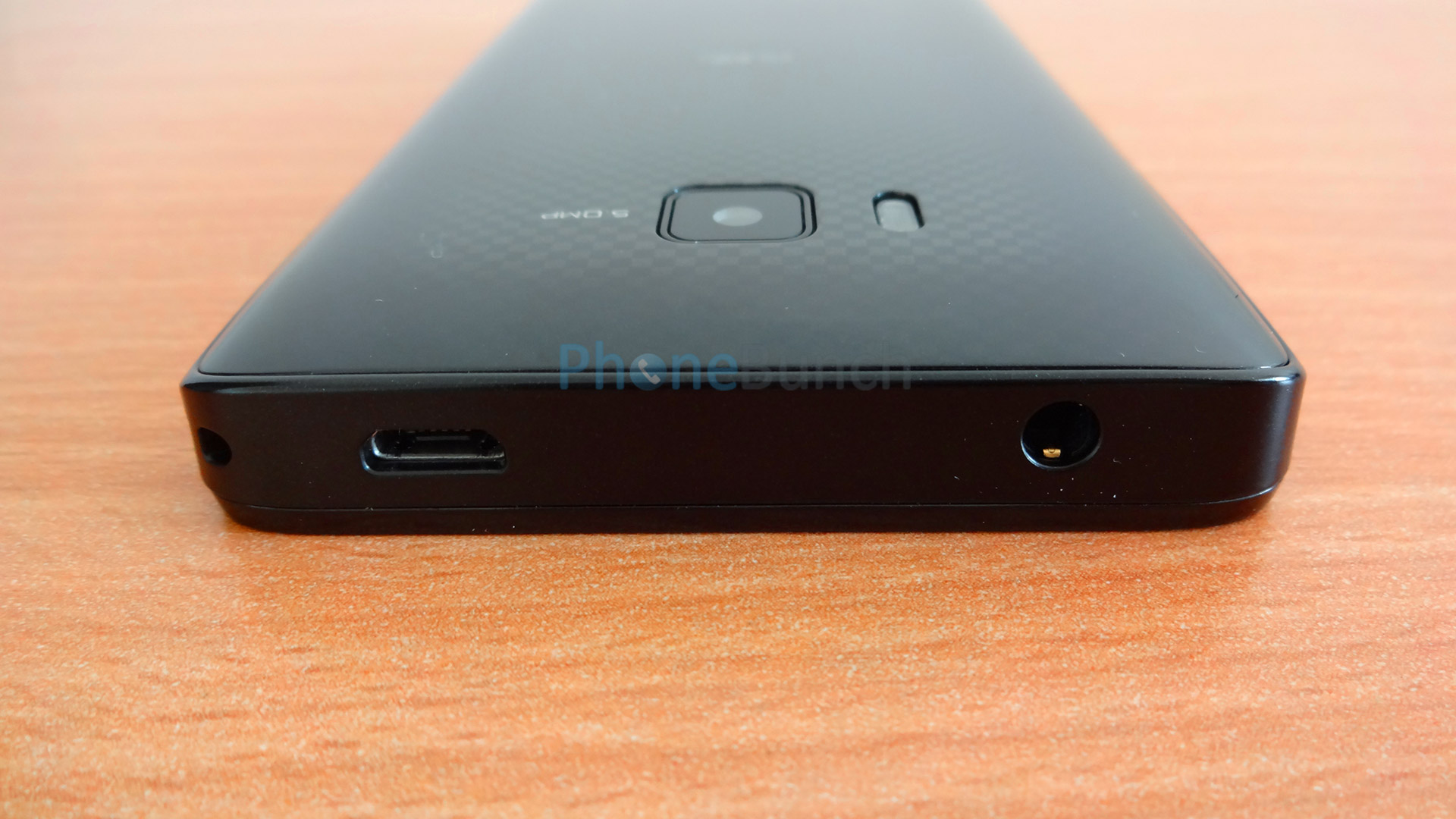
Coming to the top you have the microUSB data-syncing/charging port as well as the 3.5mm audio jack while at the bottom you have the microphone, all in their right places.

Now, here's where things get a bit interesting. Moving to the back, at the top you have the 5 MP camera with LED flash, Iris 406Q and Lava branding. The backcover has a checkerboard design which makes it look every cheap which is aided by the fact that its glossy and attracts fingerprints very easily. The interesting part is there is no speakerphone at the back, instead its been integrated with the main earpiece in the front, something that I have said time and again. The back speakerphone is a really flawed design idea. We will check how it sounds.
On opening the backcover you are greeted to two full-size SIM card slots, a microSD card slot which can take upto 32 GB cards and the battery compartment. The microSD card has one of those sliding mechanisms which I dislike, since they tend to break or get stuck.
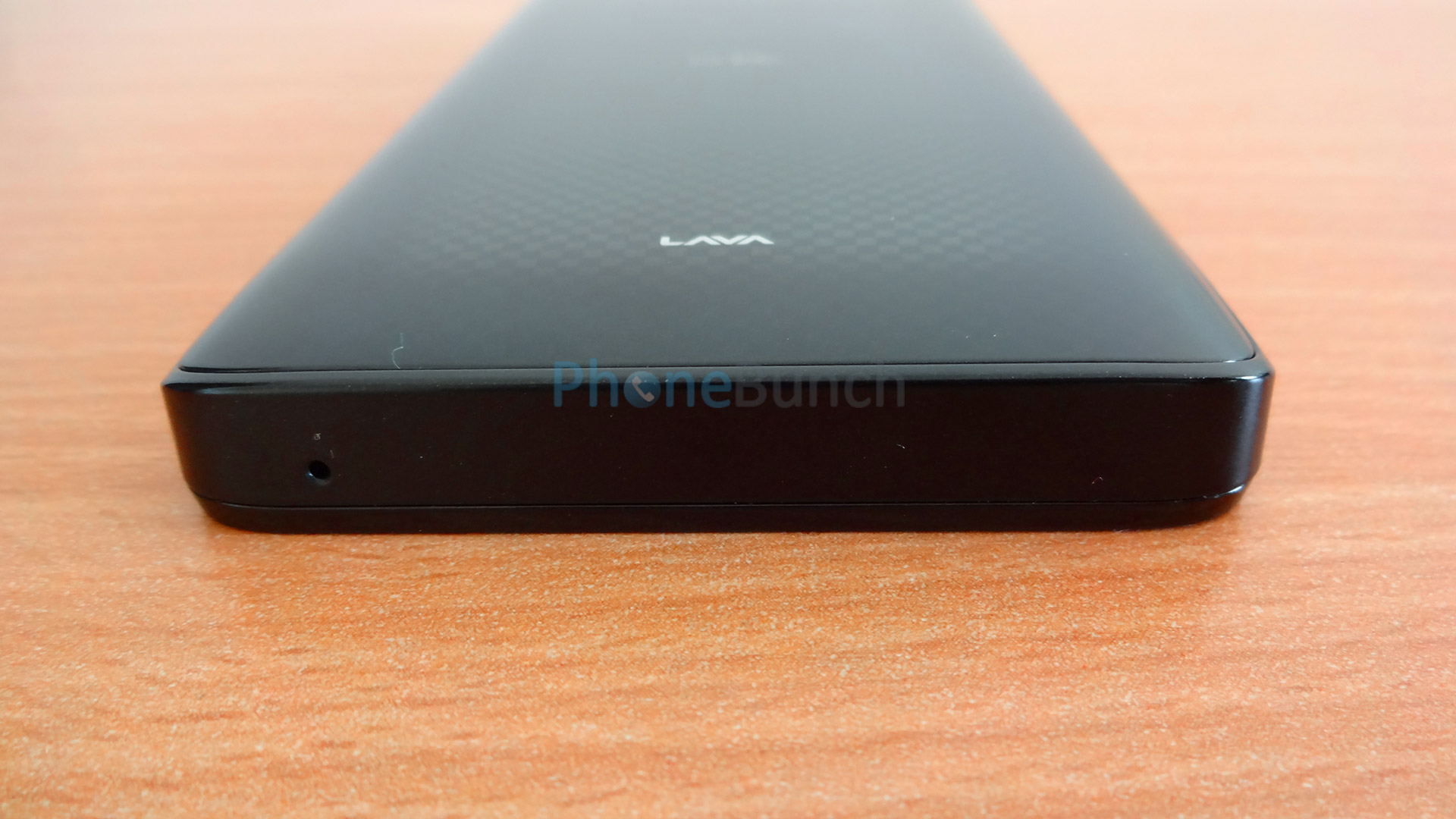
Talking about overall build quality, its definitely lacking. There is a bit of flex to the backcover as well as air-gap when its closed. There is a little bit of creaking here and there as well.
First Impressions
The Iris 406Q packs a powerful processor coupled with 1 GB RAM and Android 4.3 with a promise of KitKat update. Things can't get better than this on a budget, but the build quality is definitely a bit lacking. The UI has been customized as well, but its for the better. The launcher gets several more homescreens and you can change the animations, the app drawer gets the ability to sort apps which is always welcome. There are several other nifty changes here and there which are all welcome.
The display seems a bit iffy especially when it comes to viewing angles as well as color reproduction, you have to look straight at the display to get the best possible image. The contrast levels too seem a bit low. However, general performance is quite good, there is no lag anywhere in the interface and the brief time we used it after unboxing, everything ran smooth.
Its packed in terms of specs, but it remains to be seen how the Iris 406Q performs in real usage. We will be back with its benchmarks, gaming as well as full review. Till then have a look at the Iris 406Q from all angles.











 Comments
Comments










